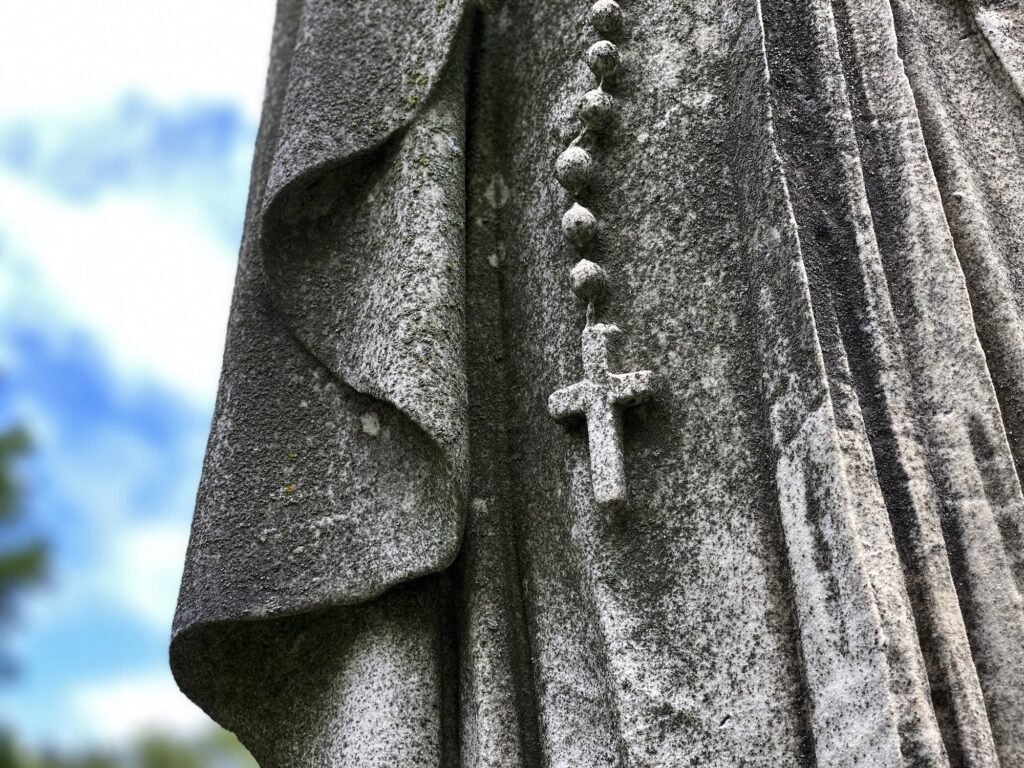HOLY – A Four Letter Word?

It’s quite paradoxical that outside the Church and in our everyday conversations, the word “holy” has become taboo. Before you become too perplexed, let’s explore the other English translation for the Greek word for holy (hagios) – saint.
Ah, now do you see it? Yes, today, nobody speaks of others in this manner.
Do you consider yourself on a path to holiness, or does the word make you cringe a little? After all, we’re only human, and we continue to make mistakes. We may believe that exhibiting holiness on earth is impossible… However, that’s not what Scripture encourages us to believe. We are called to recognize the holiness in others, even if we haven’t yet “arrived.”
In Scripture, we are repeatedly shown and told that there is a correct way to live a holy life, to be “set apart from the world to be like God” (that’s the Greek speaking, not me) – both in the Old Testament and the New Testament:
- The Shunammite Woman recognizes Elijah as holy (2 Kings 4:9-10).
- Paul writes to the holy people (hagios) of Ephesians (Ephesians 1:1) (notice that he doesn’t address the Corinthians in the same way, as they required some correction).
- Priscilla and Aquila (Romans 16:5).
- Lois and Eunice (2 Timothy 1:5).
- Philemon, “the hearts of the saints have been refreshed through you” (Philemon 1:7).
Scripture is teeming with examples of recognizing extraordinary lives that were consecrated for God, described as hagios, holy, also known as (little s) “saints.”
And here’s the surprising fact: the Greek hagios is an adjective, not a noun. You can comfortably describe someone’s behavior as hagios – holy, saintly. By doing so, you are not “playing God” or passing judgment on their worthiness of heaven.
But I’m Not Perfect…
Now, let’s return to the word that elicits mixed reactions:
Have you heard it said in Christian circles, “Well, we’re all just sinful people,” “We can’t be perfect,” “I will always fall short”? Once again, let’s turn to the Bible for guidance:
- Leviticus 11:44 – For I am the Lord your God; sanctify yourselves therefore, and be holy, for I am holy. You shall not defile yourselves with any swarming creature that moves on the earth.
- 1 Peter 1:16 – for it is written, ‘You shall be holy, for I am holy.’
- 1 Corinthians 1:2 – To the church of God that is in Corinth, to those who are sanctified in Christ Jesus, called to be saints, together with all those who in every place call on the name of our Lord Jesus Christ, both their Lord and ours:
So, you might be wondering, why do you instinctively react to the word holy (or saint) the way you do?
Culture. (I know, it’s an easy target)
Our current secular culture encourages, rewards, applauds, and celebrates imperfection. Our culture discourages, downplays, and outright rejects the pursuit of morality that contradicts an “inner truth.” As Christians, our truth is an outward and absolute truth in Christ Jesus. It often stands in opposition to our fleshly nature, which often disguises itself as an “inner truth.”
Therefore, even though the pursuit of holiness is clearly outlined in the Bible as something to be recognized, rewarded, applauded, and celebrated, our present secular culture discourages it as unnatural.
But Saints Are Just Statues?
Now, for my Catholic friends who have witnessed countless historical people being acknowledged as capital S Saints, the term may feel archaic and unattainable. The image that comes to mind is that of Saints in old medieval stories or paintings, gazing longingly toward heaven while holding symbols of their patronage.
Culture is once again the adversary, as secular messaging revolves around living for the moment, dismissing the past as outdated, and proclaiming modernity as more enlightened.
How did we arrive at this point? When did we stop using such language, openly encouraging the adjective “holy,” applauding it, and earnestly seeking it?
Perhaps it occurred during the transition from perceiving holiness solely as a noun, as in “Saint” with a capital “S,” rather than recognizing it as an adjective like hagios.
Would it help to shift our thinking, considering it as an adjective rather than a noun?
Can you imagine a world in which hagios describes you?
Could we dare to live a life that is truly holy, pleasing to God?
It is time for us to boldly reject the norms of culture and live counter-culturally. Let us turn away from an individualistic and defeatist view of our place in the family of God, and instead look to the examples throughout history, those who have gone before us.
Because, as St. Paul states in Romans 12:1, they are watching us, and to our surprise, they are applauding, encouraging, and celebrating our pursuit of hagios – holiness.

